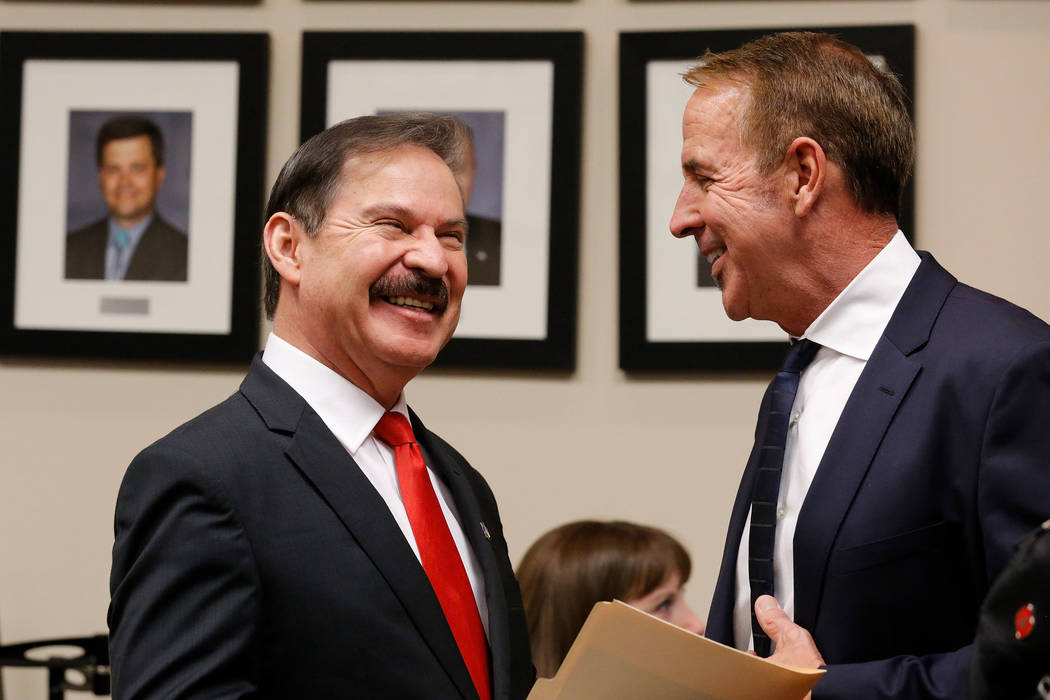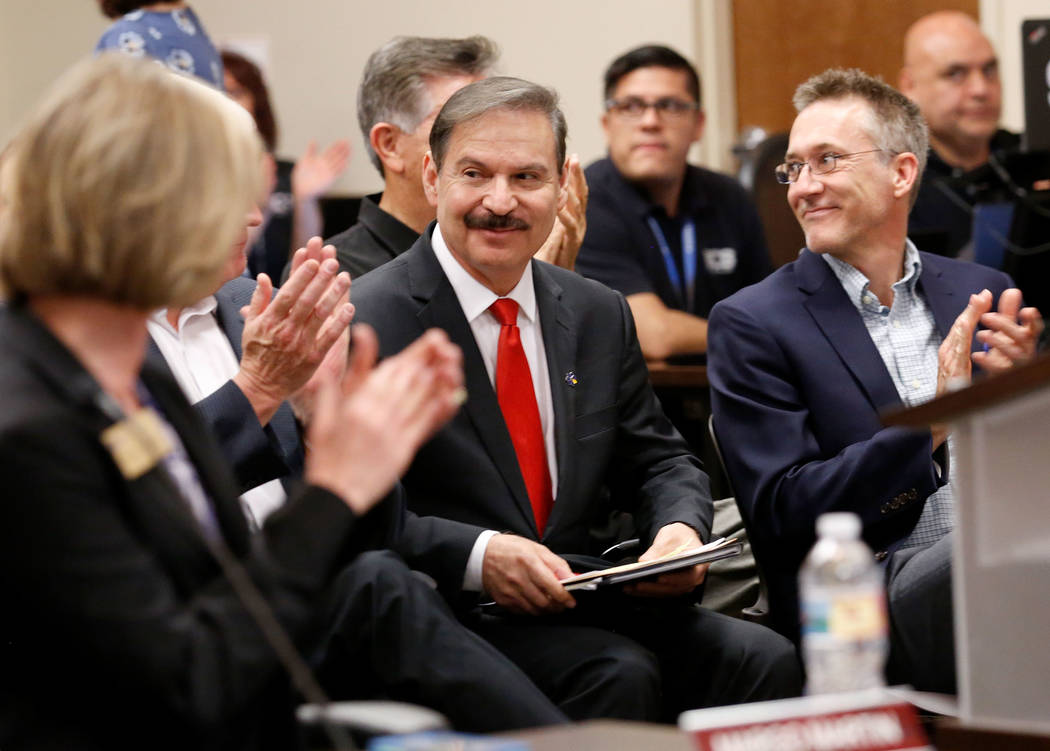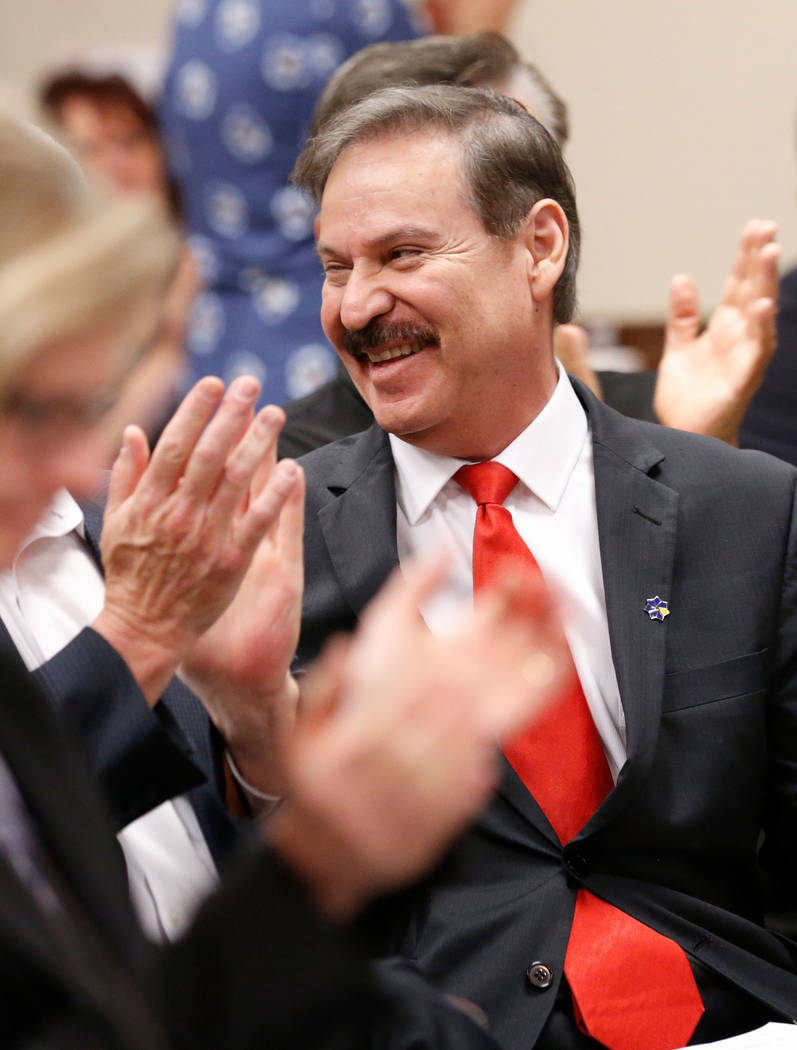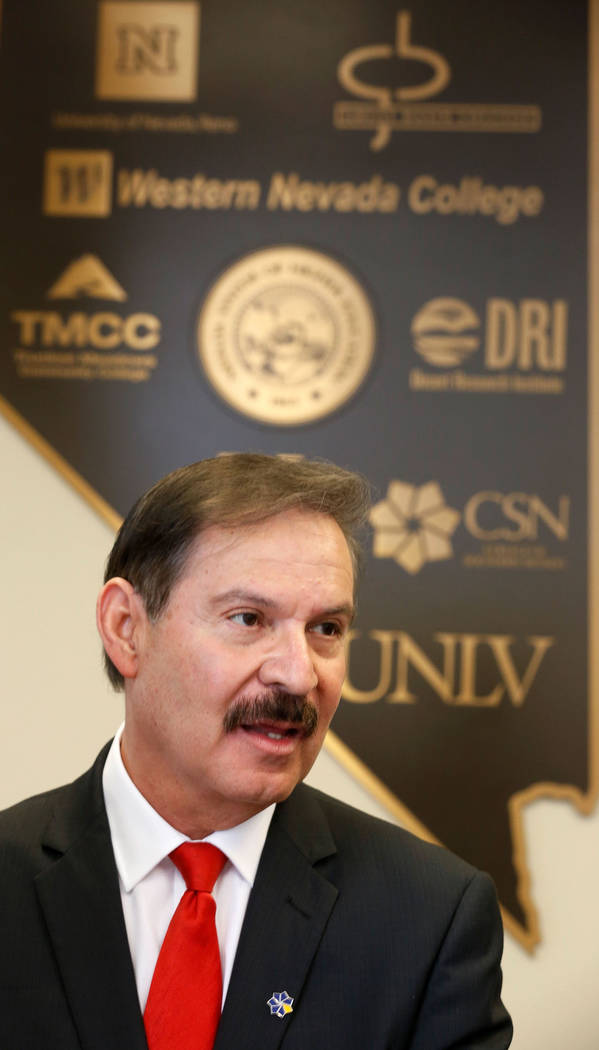College of Southern Nevada appoints new president





Driven. Approachable. Inclusive.
And passionate for change.
These are among the adjectives College of Southern Nevada faculty and staff used to describe their next leader after their first interactions with him.
The state Board of Regents on Friday unanimously appointed Federico Zaragoza as the next president of CSN.
“I think he’s the one who has the most potential to transform our campus,” Regent Trevor Hayes said.
Zaragoza, who holds a Ph.D. in urban education and administrative leadership from the University of Wisconsin-Milwaukee, was one of four finalists in a search that one regent lauded as being “unbelievable” because of the caliber of the candidates.
“This is my fourth search that I’ve been a part of,” Regent Carol Del Carlo said Thursday during a meeting of the president search committee. “This was by far the toughest one.”
He will earn an annual base salary of $285,000 and his contract will run from Aug. 15 through to June 30, 2021.
On Friday, after his appointment, Zaragoza said he was struggling at first with his decision to apply for the job, but that he encountered a loving and giving community.
“I felt really something special about this opportunity, especially about CSN,” Zaragoza said.
Others highlighted the diverse pool of the candidates, with one advisory member saying it’s the most diverse pool she’s seen.
Zaragoza, the vice chancellor for economic and workforce development at Alamo Community Colleges, won the approval of the committee following a public interview session on Thursday, where the two other finalists also interviewed. Keith Curry, president and CEO of Compton College in Compton, California, dropped out of the search after attending the public forums, and receiving an outpouring of support from his college.
Utpal Goswami, president of Metropolitan Community College-Maple Woods in Kansas City, Missouri, was named the runner up.
Some advisory members and regents thought Goswami would make a better choice, and some favored Dr. Feleccia-Moore Davis, the provost of Tallahassee Community College in Florida, but the praise for Zaragoza won out.
“I believe he’s a multi-systems thinker,” said Ricardo Villalobos, an advisory member and the executive director of workforce and economic development at CSN. “Ultimately, he’d be a great catalyst for change. The other two would be status quo.”
One advisory member highlighted Zaragoza’s achievement of raising graduation rates at the Alamo Colleges from 9 percent to 20 percent over 10 years.
“We can’t ignore that aspect,” said Eric Gilliland, an advisory member.
Zaragoza’s personal story also impressed the committee.
In the first 18 years of his life, Zaragoza said he lived a “dreamer existence.”
“I’m very sensitive to our students from that perspective,” he said.
His mother, who was born in Chicago, lived in Mexico City when she gave birth to Zaragoza and his two sisters. He was raised in south Texas, and at the age of 18, became a citizen.
“My mother was a single mom,” Zaragoza said. “It instills a value system in you where education is very, very important. For many of us that was the only way out. My mother was my hero. She was the hardest working person that I’ve ever met. I believe I’ve inherited some of her values and her work ethic.”
Zaragoza’s educational journey took him to the Midwest, where he received his bachelor’s degree at the University of Wisconsin-Milwaukee. He also spent his early years in higher education in the Midwest before he moved to San Antonio to served as Vice President of administration at St. Philip’s College.
Since 2004, he’s been at the Alamo Community Colleges, which is made up of five independent colleges. In his current position, he makes sure the colleges are providing workforce programs that are responsive to industry needs and that align with student pathways.
Contact Natalie Bruzda at nbruzda@reviewjournal.com or 702-477-3897. Follow @NatalieBruzda on Twitter.













